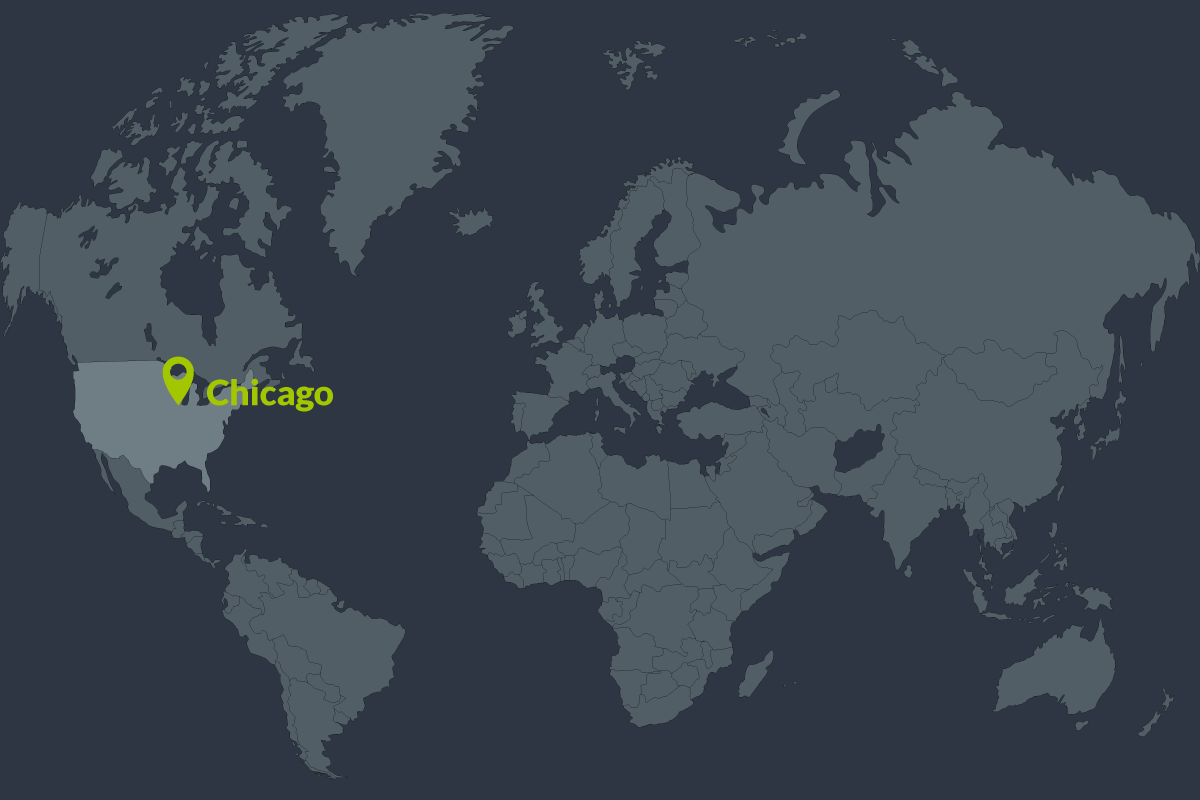Chicago VPN

How to get a Chicago IP address?
Sign up for CactusVPN.
All plans come with a
30-day money-back guarantee.
Download the CactusVPN app.
Available for PC / Mac / iOS
Android / Fire TV
Connect to Chicago VPN server.
That’s it – you have a
Chicago IP address!
Why CactusVPN is the Best VPN for Chicago?
Unlimited Devices
With One Subscription
CactusVPN account is not linked to a particular device. You can use an unlimited number of devices simultaneously with one subscription.
End-to-End Encryption,
7 VPN Protocols
Make your traffic indecipherable with our military-grade encryption. Choose between OpenVPN, Wireguard®, SSTP, IKEv2, L2TP/IPSec, and PPTP.
No Logs
Guaranteed
We don’t keep any logs at all (not even your IP address), and we guarantee we don’t share your information with any third parties.
High Speed
Chicago VPN Servers
We use only high speed 1 gbps servers that are configured and managed by our high qualified admins to offer you the best speed and security.
Free Proxy
Servers
Each VPN server doubles as a free Chicago proxy server that you can use whenever you like. This feature comes as a bonus, just because we love you!
User-Friendly Apps
for Your Favorite Devices
Connect to our servers and configure your connections in only a few seconds. Kill switch, VPN obfuscation, DNS leak protection, reconnect automatically etc.
Frequently asked questions
Access US-only Websites – A Chicago VPN would be a good option if you live outside the US and want to access US websites. There are plenty of US-only websites that can’t be accessed outside the country.
Give the Impression You Live in the US, specifically Chicago – this can usually be the case if you’re an online freelancer from another country and you want to give the impression you live in the US – either to a potential employer or client.
Secure Your Data & Privacy Data – if you live in Chicago, and want to secure your data when you connect to a Wi-Fi network – like when you’re on your way to work or eating lunch at a restaurant – a VPN with a server in your town would be an ideal choice because of the close proximity to you.
Bypass Network Restrictions – It’s not uncommon for employers or learning institutions to use firewalls to block certain websites (like YouTube, for instance) on their networks, after all. Chicago VPN can help you overcome firewalls with ease.
Sure, you could do that. However, before you go ahead with that, you should keep one thing in mind – free VPNs aren’t exactly “free.” They have to make money somehow, after all, or else they wouldn’t be able to offer VPN services and maintain their servers.
- They sell your bandwidth.
- They bombard you with ads.
- They sell your info to third-party advertisers.
While the US doesn’t have the best track record of respecting Internet rights and privacy, using a VPN is completely legal in the country – as long as you don’t use it to break the law, of course.
